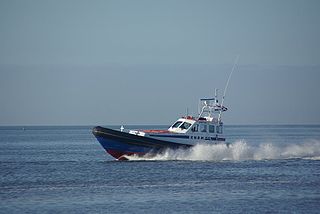Summer is coming fast. With warm weather comes fun times at the beach and on the boat. Brush up on your boating safety knowledge with these tips from Society Insurance.
1. Wear a Life Jacket
So, why is wearing a life jacket so important? Consider these statistics from Wisconsin’s 2014 annual boating report:
For the 117 boating accidents that occurred in 2014, only 22% of the operators reported wearing a life jacket! For the nine fatalities that occurred (where life jacket use was reported) 89% of the people were not wearing one! In one case a person who could not swim fell out of a pedestal seat in a moving boat and drowned.
The activity with the most accidents was fishing at 40%, followed by water skiing/wakeboarding at 20%. The age group with the most accidents at 33% was 20 to 29 year olds. This is interesting because in Wisconsin if you were born after January 1, 1989 you must complete a boating education course to operate a boat. At the same time, 56% of those involved in a boating accident have not had a boating education course.
Keep in mind that you do not have to be in a motor boat to have a boating accident. In 2014, there were 161 vessels involved in a boating accident and 22% were not powered; this means they were sailboats, canoes, kayaks and paddle boards. If this is how you’re enjoying your time on the water, you still need to practice boating safety.
2. Attend a Boating Safety Education Course
Where can you find a boating safety education course? One source is online at the Wisconsin Department of Natural Resources (DNR) website. However, I recommend programs that are in-person boating education courses like a classroom course put on the United States Coast Guard Auxiliary and the United States Power Squadrons. In these courses you can interact with instructors that have 10, 20, sometimes even 40 years of boating experience.
3. Request a Free Vessel Safety Check
Another boating safety activity that you should consider is a free Vessel Safety Check, done by the United States Coast Guard and United States Power Squadrons. These are free voluntary safety checks that do notincur any fine or violation if you fail. What type of items are checked?
- Life Jackets
- Registration and numbering
- Navigation lights
- Ventilation
- Fire extinguishers
- Distress signals (flares, horn, etc.)
- Battery cover and connections
All of these items are currently required by state and federal laws and, if missing or non-operating, can result in a citation if your vessel is inspected by the Coast Guard. For the first item on the list, life jackets, federal boating safety violations can get very expensive. Under the right circumstances the penalty could be as high as $1,000!
Once you pass a free Vessel Safety Check (and don’t change anything on your boat after the check), you can be assured that if you are ever stopped on a waterway by the Coast Guard or DNR for an inspection you should have nothing to worry about.
Last question: Would you let your child go out in a boat without a life jacket on? No. Set an example for your kids and grandkids, Wear It! Be safe and have fun!
Source: Tim Hoffman @ Society Insurance


